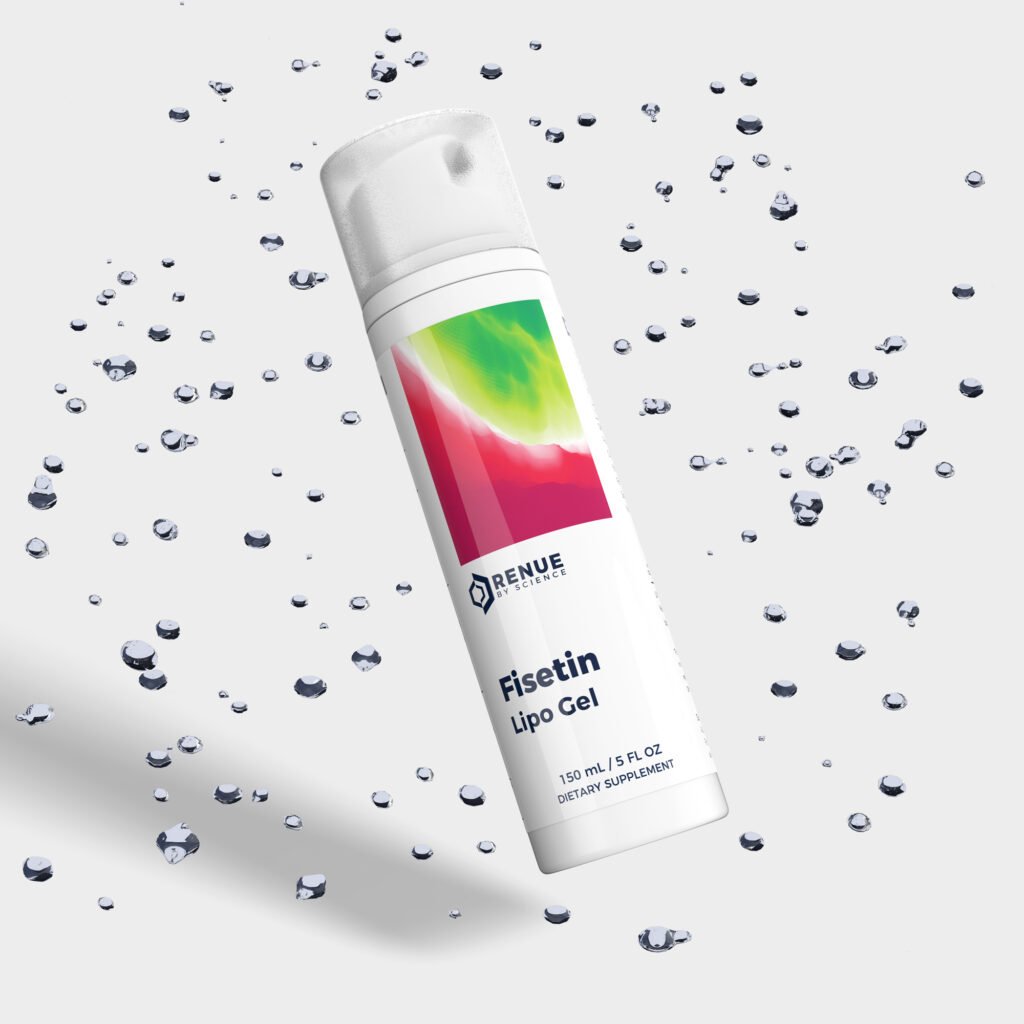Coenzyme Q10 , or CoQ10 ,also known as ubiquinone is the “poster boy” for improving energy production in the human body. With no significant side effects, it is a safe supplement to take daily to support cellular energy production. It is also required for the proper processing of fats, cholesterol, carbohydrates and protein in the body. The Food and Drug Administration in the United States has approved the use of CoQ10 as an adjunctive treatment for a few specific diseases: congestive heart failure, high blood pressure, and angina (chest pain due to poor blood flow to the heart).
What is coenzyme Q10 used for?
Coenzyme Q10 is a natural compound made mostly by our liver and found in every cell in the body. For this reason, its other name is ubiquinone, which comes from the word “ubiquitous”. It is well known for its antioxidant effects because it is able to regenerate other antioxidants (such as vitamin C or E, carotenoids, etc.) when they have been attacked by free radicals.
CoQ10 also plays a key role in the production of energy in our mitochondria. It is in these small organs, several hundred within each cell, that our energy (in the form of ATP) is produced at all times. This thanks to the combustion of nutrients (mainly glucose) which takes place there with oxygen. CoQ10 is therefore very important for the functioning of muscles (which consume a lot of ATP) and, more particularly, the heart muscle, in perpetual motion.
The coenzyme q10 benefits
Degenerative diseases
 Cardiovascular
Cardiovascular
Studies have shown that people who have had heart problems have less coQ10 in their heart muscle cells. Similarly, taking coQ10 could improve the condition of subjects with heart failure and hypertension. It would therefore be a shame to deprive yourself of this possibility of care without danger.
Others
In some types of cancer, too low levels of coenzyme Q10 have also been found.
Effects of CoQ10 have been noted in other age-related diseases such as diabetes, Parkinson’s disease, hypertension…
This does not mean that it is absolutely necessary to take CoQ10 to be in good shape and avoid the appearance of these diseases. If some product merchants sometimes want to make people believe it, it is necessary, as always, to keep a certain distance.
A question may also arise about some studies: is it not just because it increases cellular energy production at all levels that it brings about improvements in these degenerative diseases? In studies on Parkinson’s, for example, wouldn’t we have had just as good (or better) results with other natural substances? Not that easy…
Effects on muscle performance
The studies are contradictory. It seems that coQ10 does not increase skeletal muscle performance in athletes and young subjects. However, it could help recovery after effort or injury through its antioxidant effect.
CoenzymeQ10 and aging
We make less coenzyme Q10 with age
In mice, long-term intake of ubiquinone did not show an extension of lifespan or an increase in the capacities of their antioxidant system.
However, while ubiquinone is produced naturally by our bodies, its production declines over time, much like most of our hormones. The rate would drop by 25% around age 50 and by more than 60% around age 80.
In this case, a supplement of coQ10 would become logical to compensate for this age-related deficiency, where the drop in energy begins to be felt and where oxidation does more and more damage.
We must not forget that, to make coQ10, our body absolutely needs tyrosine (an essential amino acid) and vitamins B and C. First of all, we must therefore be careful not to lack it.
How to Increase Your Ubiquinone Levels
Ubiquinone can be found in meats, fish and vegetable oils. Nuts and seeds also contain it.
In the battle against aging, it appears that the beneficial amount for a person of average weight is between 30 and 90 mg per day in a subject without cardiovascular pathology. Some writers recommend up to 200 mg per day, but is this justified? It’s difficult to say.
Do not mix up the dosages used to treat heart failure with those used to adjust for age-related production loss (which are lower).
Ubiquinol is a derivative of ubiquinone, a naturally occurring and active compound in the body. This can serve as a marketing argument for certain products that provide ubiquinone and ubiquinol, but in fact it is only at a very advanced age that an enzyme deficiency could prevent us from transforming ubiquinone into ubiquinol.
Precautions in the use of coenzyme Q10
There is no particular danger or known contraindication, but it is however preferable to be careful in the event of hepatic insufficiency and to seek the advice of the doctor in the event of drug treatment.
Possible side effects
They are rare: minor digestive disorders (even diarrhoea) and some skin reactions.
Drug Interactions
– antidiabetics
– antihypertensives
– blood thinners (anti-vitamin K)
– dopamine stimulants.
Let us point out here one of the perverse effects, and not the least, of the taking statins (medicines against cholesterol). It decreases the quantities of coenzyme Q10 in the body, especially in the muscles (including the myocardium, of course), which will not improve the cardiovascular risk of these people.
The best coq10 supplement
Renue by science LIPO CoQ10 – Powdered Liposomal CoQ10
LIPO CoQ10TM is a liposomal delivery technology that enables enhanced coenzyme Q10 absorption in easy-to-swallow capsules.
Instead of being destroyed in the stomach, the technique of Renue by science captures and distributes a highly concentrated version of CoQ10 intracellularly in its entire form, where it may be absorbed and used.
A reduction in energy metabolism in numerous tissues, including the liver, heart, and skeletal muscle, is one of the hallmarks of aging. Tissue coenzyme Q10 concentrations have been reported to decrease with age, coinciding with age-related reductions in energy metabolism. (Source)
Coenzyme Q10 is essential for mitochondrial oxidative phosphorylation and adenosine triphosphate synthesis (ATP).
High-dose coenzyme Q10, such as that found in liposomal form, has been proven to raise coenzyme Q10 levels in plasma and lipoproteins when taken orally. (Source)
Free radicals can cause cellular damage during exercise, but a 2013 study indicated that supplementation with CoQ10 helps prevent this after strenuous exercise. (Source) The study found that taking 300 mg of Ubiquinol every day for six weeks improved physical performance considerably.
Another research discovered comparable effects, as well as the fact that taking this enzyme and boosting CoQ10 levels can improve endurance in both trained and untrained subjects. (Source)
LIPO CoQ10TM provides advanced assistance for the following:
- Supporting heart and blood pressure health
- Increasing physical endurance and performance
- Defending against free radicals
unol Ultra CoQ10
With Qunol Ultra CoQ10, you may achieve optimal CoQ10 blood levels in just one week. It also promotes heart health and is required for the body’s energy generation.
THREE TIMES BETTER ABSORPTION THAN REGULAR CoQ10. Clinical studies have shown that no other CoQ10 supplement absorbs as well as Qunol. In fact, Qunol Ultra absorbs three times as well as conventional CoQ10.
With better absorption than conventional CoQ10, Qunol 100mg CoQ10 softgel capsules will help you achieve optimal levels of Coenzyme Q10 sooner, allowing you to reap the benefits sooner.
In just a few weeks, Qunol Ultra can help you achieve optimal CoQ10 blood levels.
Shop NowNature Made CoQ10
Nature Made CoQ10 200 mg Softgels aid in heart health and the creation of cellular energy. This gluten free CoQ10 supplement has no color, artificial flavors, or preservatives and is made from carefully selected components under stringent production techniques. This dietary supplement may be beneficial for patients using cholesterol-lowering statin medicines, which might decrease the body’s synthesis of CoQ10. Nature Made Coenzyme Q10 200 mg Softgels can assist in replenishing this vital ingredient.
Adults should take one of these CoQ10 softgels with water and a meal every day. These Coenzyme Q10 nutritional supplements are manufactured by the #1 Pharmacist Recommended brand of CoQ10 Supplements. Nature Made’s dedication to your health is at the heart of every product created. Nature Made vitamins are of high quality.
Shop NowENERGIZER – Liposomal Glutathione, CoQ10, Apigenin, Resveratrol
Glutathione – 65 mg
CoQ10 – 25 mg
Apigenin – 15 mg
Resveratrol – 65 mg
Energizer NAD+TM Take 1-2 capsules per day to enhance blood levels of nitric oxide and hydrogen sulfide, which have been demonstrated in studies to promote the efficiency of NAD+ boosters.
Shop NowaSquared CoQ10
Extraneous fillers, binders, and fake substances are not included in Max Strength Coenzyme Q10 Antioxidant. Our supplements are always prepared in GMP-compliant facilities and manufactured in the United States.
Each daily dose is 400 mg, offering maximum strength results (producing 6% ubiquinone-10)! In addition, we are providing 200 veggie pills (200 days of supply). That’s a fantastic value, considering that most other companies give half the quantity (60, 90, or 120 capsules) and less than half the dose (100, 200, or 300mg powder) for an even higher price.
UBQUINOL OR UBQUINONE?
Ubiquinone is the oxidized form of CoQ10, whereas ubiquinol is the reduced form. Your body may switch from one form to the other as needed. When CoQ10 ubiquinone takes an electron, it is transformed into ubiquinol.
Shop NowWhat are the symptoms of low CoQ10?
Where do we start? It’s not a particular symptom that tells you that you are low on CoQ10, but rather a combination of problems that could be attributed to low CoQ10 levels in your body. Some of these symptoms include fatigue, muscle weakness, heart palpitations, memory issues, and even depression. The actual results of low CoQ10 on your body can vary from person to person and from case to case, so the symptoms can be slightly different for each patient.
The most common symptom of low CoQ10 is fatigue. This can be so bad that it interferes with your daily activities. Other symptoms include chest pain, heart palpitations, muscle weakness, and impaired coordination.
Who should not take CoQ10?
CoQ10 is not safe for everyone to take. It can increase the chance of getting a few side effects. Such as the following people are not suggested to take CoQ10.
The people who should not take CoQ10 are those with known allergy to it. Pregnant and breast-feeding women should also consult their doctor before taking any supplement.
A person who has kidney failure should not take CoQ10 and people allergic to this vitamin should consult a doctor before taking this supplement. Taking too much of CoQ10 can cause a serious condition called CoQ10 toxicity in which one could be experiencing symptoms like heart failure, weakness, tiredness, chest pain etc.
CoQ10 is a nutritional supplement that is commonly sold in health stores. It is an enzyme that is naturally produced by the body as a way to aid energy production in the cell, especially in the body’s powerhouse of energy metabolism, the mitochondria. While the enzyme’s benefits have been touted by many, there is no doubt that it can be beneficial in some circumstances such as having a lower heart rate, improved blood flow especially to the heart, and increased stamina and endurance.
However, there is a significant amount of interest about the potential benefits of CoQ10 for those with Parkinson’s disease or Alzheimer’s disease as well as for cancer. While some research has shown that CoQ10 can increase the quality of life for people with these diseases, it is important to note that CoQ10 is not yet a proven treatment for these diseases. It is recommended for people with these diseases to do more research on CoQ10 and decide whether the supplement is right for them.
What foods are high in CoQ10?
Coenzyme Q10 (or CoQ10) is naturally produced by the body and is also found in several foods, especially organ meats and seafood. Foods high in CoQ10 include mackerel, salmon, sardines and tuna. Other sources include chicken and beef as well as dairy products, nuts and seeds.
Conclusion – Is CoQ10 worth taking?
Coenzyme Q10 may be useful in certain age-related degenerative diseases, including cardiovascular.
In normal times, and if we are not lacking in vitamins and tyrosine in our diet, we make it and we don’t need it.
As we age, we make less and this can have two consequences especially after 50 years:
– a drop in our antioxidant system (which in turn accelerates aging)
– a decrease in our energy production (which can be felt in a permanent fatigue that gradually sets in).
It’s up to us to use it wisely.
There are a lot of conflicting reports online on whether CoQ10 deserves its reputation as an essential nutrient. It seems that the answer is yes and no. Yes, in the sense that it is definitely a useful supplement for various people. No, it doesn’t come near to a super-dieter’s long list of must-haves.
However, if you’re someone who: – Works out regularly in order to keep fit and healthy – Suffers from heart problems or cholesterol issues – Has a family history of heart disease – Wants to prevent heart disease – Is a vegetarian, vegan or otherwise immune to dietary sources of CoQ10 – Tends to be stressed – Wants to increase their energy levels – Is taking statins (which are a proven cause of CoQ10 deficiency) – Then CoQ10 will likely be something you’ll want to consider taking. But with so many sources out there, it’s hard to know whether the product you’re buying is effective. The key is to know your ingredients and know the supplier.
Is coQ10 supplement necessary & important for anti-aging?Benefits, Best, Research and Risks
Senolytic supplements – the ultimate weapon to anti-aging & rejuvenate?
What is NMN? The #1 revolutionary anti-aging supplement
Hyaluronic Acid is super star molecule for anti aging & beauty
10 Best David Sinclair Supplement List 2023 for Anti-Aging
Top 3 the best anti-aging supplements
Alive By Science
ALIVE BY SCIENCE – Bioavailable NAD+ Boosters Restore NAD+ to Supercharge Your Cells and Rejuvenate Your Entire Body As the market leader and largest maker of NAD+ products, ALIVE BY SCIENCE collaborates with a wide range of research and clinical doctors to grasp the most recent research and mix it with input from tens of thousands of users on their forum and Facebook group.
Strengthen Your Immune System With Their Apocynin Supplements!![]()
Tru Niagen
Tru Niagen is nicotinamide riboside, a form of vitamin B3 that is unique. Niagen is a NAD+ precursor that serves as a building block for NAD+ synthesis in the body. This is critical because NAD+ is a necessary coenzyme for cellular health; nevertheless, NAD+ levels decline with age and other physiological stresses such as poor diet, alcohol, lack of sleep, or too little or too much activity. Tru Niagen has been clinically proven to help raise NAD+ levels in the body. Niagen is the first and only nicotinamide riboside product that is both patented and FDA-approved.
Shop and Save With a 3 Month Supply for Only $35/Month!
Life Extension GEROPROTECT® Stem Cell
GeroProtect keeps the stem cell balance in check for long-term cell health. By changing into tissue-specific cells, stem cells aid in the rejuvenation of your body. Piceatannol from passion fruit, trans-resveratrol, and garcinol from kokum fruit are all used in this anti-aging mixture.
Get Life Extension GEROPROTECT® Stem Cell
![]()

























